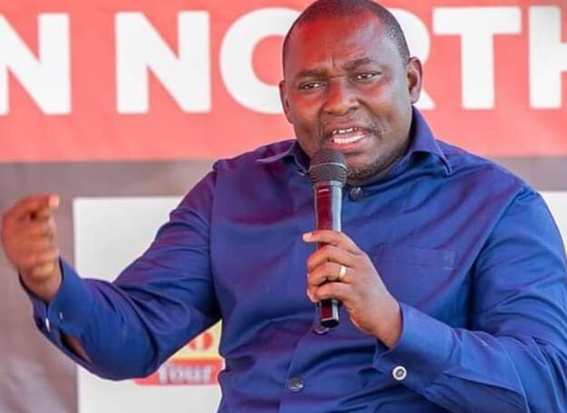The suspension of Chief Justice Gertrude Araba Esaaba Torkornoo and the ensuing legal battle have ignited a fierce debate about constitutional processes, human rights, and the delicate balance of power within Ghana’s judicial system. Solomon Owusu, a prominent member of the Movement for Change, has sharply criticized Justice Torkornoo for holding a press conference to discuss her removal proceedings, arguing that her public commentary constitutes a breach of Article 146 of the 1992 Constitution, which mandates in-camera hearings and absolute secrecy in such matters. This alleged violation, according to Owusu, not only undermines the integrity of the process but also opens the suspended Chief Justice to potential charges of contempt or even a fresh petition for removal. The crux of Owusu’s argument hinges on the principle of confidentiality enshrined in Article 146, which he believes Justice Torkornoo has flagrantly disregarded by addressing the public about the ongoing proceedings.
Justice Torkornoo’s public statements, particularly those regarding her husband’s exclusion from the hearings, have further fueled the controversy. Owusu questioned the relevance of her husband’s presence, suggesting that her ability to function professionally should not be contingent on his physical proximity. This line of argument, while seemingly dismissive of Justice Torkornoo’s concerns about due process and potentially gendered expectations, underscores the broader debate about the fairness and transparency of the removal proceedings. Owusu’s remarks reflect a perception among some that Justice Torkornoo’s public pronouncements are an attempt to sway public opinion and exert undue pressure on the investigative process. This clash of perspectives highlights the tension between maintaining confidentiality during sensitive proceedings and ensuring that individuals facing such proceedings are afforded basic rights and a fair hearing.
In a move that has further escalated the situation, Justice Torkornoo has filed a lawsuit against the Republic of Ghana at the ECOWAS Community Court in Abuja, Nigeria. This legal action challenges the processes surrounding the petitions seeking her removal, alleging human rights violations during the hearings before the five-member committee appointed to investigate the allegations against her. The recourse to a regional court signals a significant escalation of the conflict, indicating Justice Torkornoo’s dissatisfaction with the domestic legal avenues available to her. Her decision to seek redress at the ECOWAS Court highlights the gravity of her concerns about the fairness and impartiality of the proceedings within Ghana.
Justice Torkornoo’s allegations paint a stark picture of the conditions she faced during the hearings. She has described her treatment as worse than that typically afforded to treason suspects, alleging degrading and inhumane conditions that, in her view, violate constitutional guarantees of due process. This characterization of her treatment emphasizes the severity of her accusations and suggests a fundamental breakdown in the principles of fairness and respect that should underpin any judicial proceeding. Her claim that the proceedings are unconstitutional strikes at the heart of the legitimacy of the process itself, challenging not only the conduct of the committee but also the underlying legal framework supporting its authority.
At the core of Justice Torkornoo’s defense is the assertion that she has been denied basic legal rights, including the right to be informed of the specific allegations against her and how a prima facie case was established. This lack of transparency, she argues, has rendered her unable to mount a proper defense and undermines the fairness of the entire process. The absence of clear and specific charges makes it difficult for her to address the accusations directly, leaving her vulnerable to potentially unsubstantiated claims. This lack of clarity also raises concerns about the potential for abuse of power and politically motivated accusations, further eroding public trust in the integrity of the judicial process.
The suspension of Chief Justice Gertrude Araba Esaaba Torkornoo has thus sparked a complex legal and political battle, highlighting fundamental tensions within Ghana’s judicial system. The conflicting interpretations of Article 146, the allegations of human rights violations, and the recourse to the ECOWAS Court all contribute to a multifaceted controversy that demands careful consideration of constitutional principles, due process rights, and the importance of transparency and accountability in upholding the rule of law. The outcome of this unfolding legal drama will undoubtedly have significant implications for the future of Ghana’s judiciary and its ability to maintain public trust and confidence.


